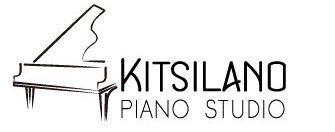The small pupils of the conservatory almost all make their first scales on a keyboard. Indeed, piano lessons are not exclusive to future pianists. Mastering this versatile instrument has many benefits for musicians and singers. Easy learning of music theory, accompaniment, tuning, work on dexterity, and accuracy. Discover all the reasons to learn the piano in addition to another instrument.
Learn music theory and read notes with the piano
Its flat, easy-to-play keyboard makes the piano the favorite instrument for locating notes and representing their intervals. Without any special technique, any student can play the notes of a scale and learn to name them.
To learn to read a score, there’s nothing like trying your hand at the keyboard. By visualizing the staves directly on the keys, the sometimes-abstract notions of music theory seem much more accessible. Tones and semitones take on their full meaning, and chords, impossible to perform on most wind instruments, become affordable.
Using the piano to tune your instrument
Basic and yet essential, the tuning of an instrument requires being based on a reference which, often, is the piano. Why?
It is an instrument that goes out of tune much more slowly than others. If the violin or the flute must be readjusted almost with each piece, the piano is satisfied with a quarterly or annual tuning session. This being particularly laborious and requiring the presence of an instrument maker, it is much easier to tune the other instruments on the piano. Of course, this problem does not exist with digital pianos, which by definition always produce the right sound.
Having a small keyboard at home, therefore, allows you to tune your guitar or clarinet as soon as necessary, provided you know how to locate the notes on the keyboard.
Warming up while singing with a piano
Vocals with a piano have a certain advantage: you gain in accuracy by sticking as closely as possible to the tone of the keyboard and can you correct quickly. Moreover, most singing teachers know the basics of the piano, and some even accompany their students.
If you are unable to play the piano with the song you are working on, then play it slowly on the keyboard, note by note, to hear the melody and rhythm very precisely. With private piano lessons at home, you will be able to decipher vocal warm-up exercises and perform scales.
Accompany yourself on the piano as a singer
There aren’t any tips to help you play the piano while singing songs, as this move even lands the most seasoned individuals in embarrassing situations at times. The key is to practice again and again. A singer who plays piano along with singing will know how to perfectly adapt his tempo, own variations, make up for an error, and improvise.
The piano-singing duo makes recurring appearances in some bars and restaurants, and you will avoid having to look for an accompanist for each of your performances. It is also an excellent exercise for developing your intellectual capacities.
Compose easily on the piano
By mastering the basics of the piano, it becomes easy to improvise small melodies, to find corresponding arrangements. Do you write songs? Add some chords so that other instruments can accompany you. Do you play in a group? Create on the keyboard the melodic lines of the other members of the group, and polish your harmonies. If you have a digital piano connected to a computer, a simple software will allow you to write a score directly using the keyboard.
Increase your dexterity and flexibility with the piano
Guitarists know better than anyone that the first steps on an instrument can be painful. But, a piano allows you to work on the strength and flexibility of the fingers in a different, but effective way. By forcing yourself to a few hours of practice on a keyboard, the trills and vibratos will no longer hold any secrets for you!
